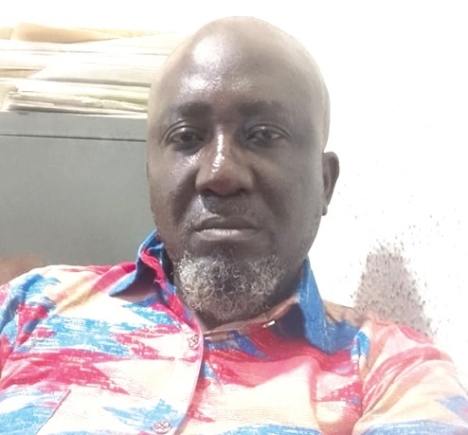
NGO laments mentally ill persons roaming streets
The government, through the Mental Health Authority, has been urged to take urgent steps to pick up mentally challenged persons from the streets for proper care and treatment.
The Chief Executive of A New Beginning Rehabilitation Centre, Osman Ahmed Okyere, who made the call, said such persons should be rehabilitated and reunited with their families or kept in safe places after their treatment.
Lamenting how mentally ill persons roamed the streets, Mr Okyere told the Daily Graphic that such compatriots not only posed danger to society but were themselves endangered.
“Mentally challenged people roaming in public places are always in danger.
They need to be picked up and put on admission in the various government-owned mental health facilities for treatment, and also given treatment support in line with the Mental Health Act (Act 846),” he said.
Relevant law
Among other things, Section 73(1) of the Act states: “A police officer may remove a person to a facility or mental health facility for assessment under a certificate of urgency if that person is found in a public place appearing to be suffering from mental disorder and is highly aggressive or showing out-of-control behaviour and appears to require immediate care, control and treatment.”
Section 73(2) also states: “Family members, caregivers, health professionals, social welfare officers and any other citizens may seek the assistance of the police to take a person to a facility or mental health facility under a certificate of urgency in a situation where that person in a public place is highly aggressive.”
Furthermore, Section 73(3) states that a person being removed to a facility or mental health facility by the police may be taken to a place of safe custody for a period not exceeding 48 hours if the person cannot be transferred immediately to a facility.
Section 73(4) also states that a district assembly is responsible for the well-being of persons with mental disorders found in public places in the district.
“A district assembly shall liaise with the police, social welfare and health authorities to remove persons with mental disorder who are a danger to themselves or to others, and found in public places in the district to a facility or mental facility for treatment and rehabilitation”.
Mercy
Mr Okyere said mentally ill persons were at the mercy of the harsh weather, while unkind and unfriendly people, who did not understand their situation, often mistreated and abused them.
He said they were always being knocked down by cars, resulting in serious injuries or deaths, and that “they suffer from other health problems such as malaria, typhoid and cholera, while they did not have access to treatment on the streets”.
In the case of the females on the streets, Mr Okyere said they were often raped, which sometimes resulted in pregnancy and sexually transmitted diseases.
“Some occult people harm mentally challenged people roaming in public places for their rituals.
When they become aggressive, a lot of the time, people have no sympathy for them and they beat them mercilessly.
Mentally challenged people roaming in the streets can go naked on the streets unawares, and this is a very big shame to human dignity, a shame to those of us who think we are normal but are not doing anything about it, and are not treating their care as a matter of urgency,” he said.
Mr Okyere said mentally challenged people could pile up a lot of rubbish as their “belongings” in the streets, which did not help the waste management situation in the country, while they could suffer malnutrition due to the lack of a balanced diet.
Stakeholders
“We are, therefore, calling on all stakeholders, the President, Minister of Health, Mental Health Authority, social welfare offices of district assemblies, the police, civil society organisations and the general public to support efforts to take them to government psychiatric hospitals for admission and treatment, and also to offer them after-treatment support.
“We are pleading with the government to budget for the Mental Health Fund and to also create a Mental Health Levy so that funds can be generated automatically to pay the hospitals to make treatment sustainable.
Businesses and the general public can also donate to the fund,” he emphasised.
Members of the public, he said, could support the Mental Health Fund through an Ecobank account number 0134404640301.
Mr Okyere congratulated the acting Chief Executive of the Mental Health Authority, Dr Eugene Kobla Dordoye, on his appointment.
“We want to plead with him to help prioritise mental health resulting in vagrancy,” he said.
